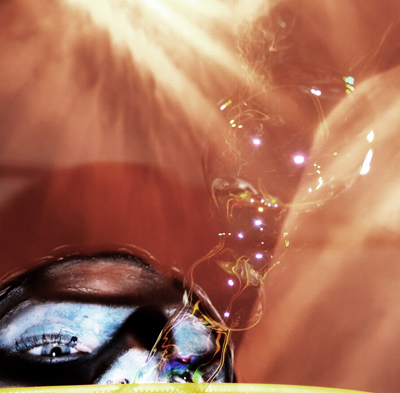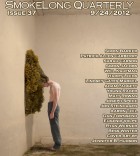You do a great job with the humor/sadness ratio—is this important to you in your own work? Who are some writers you admire for this same quality?
I don’t usually write things this short or abstract. I have heard this before about my style, that I switch between the extremes. I was going to say that humor/sadness go together, but that’s not true. Some things are just sad.
John Berryman definitely does this well. The Dream Songs are full of this.
You translate Russian Literature, and you’re moving to Russia—when and why and what will you do and what will you eat? Also, do you have a favorite Russian author beyond the usual notables?
In answer to what am I going to eat: Why, bear, of course.
One thing people don’t realize about Russia is that it is a multicultural nation, and there are other languages spoken and other literatures. The way in America we have writers writing in different languages, Spanish, Yiddish. In Russia they have people writing in Tatar, Bashkir, to name a couple. There is a poem by Gabdullah Tukai about The Shuralei, a tickle monster who lives in the woods and plagues the farmers of a small Tatar village by tickling the livestock to death. Yes, that’s right.
I enjoy the books of Andrei Bely whose work is a little tough, but great. The writing team Ilf and Petrov is fabulously famous in Russia. Every literate person (which, by the way, in Russia, is most people. They actually read books there!) has read at least The Twelve Chairs. They are basically unknown here. This isn’t a complete surprise. Their humor is extremely Russian (even Soviet) and takes some getting used to. They had traveled to America and wrote a book about their experience called One Storied America. This is a reference to the low height of buildings in America, even in cities.
This last summer I was interviewed for something. The interviewer asked me if I were to write a book about my experience in Russia, what would I call it? He suggested I follow the model of One Storied America. Had I read Ilf and Petrov? Yes, I said, I read The Twelve Tables. I was pretty embarrassed.
What are some of your favorite things/images to put into a story? Can you name one lasting image from someone else’s story that has stuck with you forever?
That’s hard to say. I like food labels, abandoned furniture in a pile. A deaf book group eating pizza, discussing Moby Dick. It’s about how it’s told.
I think something that works well, to use a famous example, are Karenin’s ears sticking out. A hundred forty years later on a different continent, we get what those ears looked like. There is a plastic chair from Lolita somewhere. The beginning of The End of the Affair. I think it triggers an image in the mind, the way they are pulled off. For that matter, describing ugly people in detail is usually a good decision.
You received your MFA from the University of Florida. Can you talk about your time there, your mentors?
Whatever else I could say about it, my writing improved greatly in that time and I was challenged. I finished a novel. I would not have expected to write a novel beforehand, let alone finish it. It’s a great novel. It’s better than the story you chose. You should read it. You should even pay to read it.
What are your writing habits? Are you disciplined? Listen to music? Need a particular time and place?
I have to do it early in the morning, alone, with coffee. Deadlines help. I think it’s true, what they say, that it’s mostly revision. I’m not exactly disciplined, but if something comes together there’s the groove you hit where it’s all you can think about and it makes you feel insane and solipsistic (to spend time in the dream world of your own creation). I would print out 100 pages at time, go through with a pen, cross out words, sections, make notes, read backwards out loud, put the edits into a computer, and do it all over again. That’s what it takes, I think. Then you can’t think of the word you want, and you’ll be talking to your grandmother and she says, “encroach!” and then you scramble for a napkin (or, let’s face it, you send yourself an email on your cell phone) to write it down on and you don’t care that she was telling you about The War and you interrupted her to write down one word, and then, two drafts later, you cut the section where you used “encroach” anyway.


